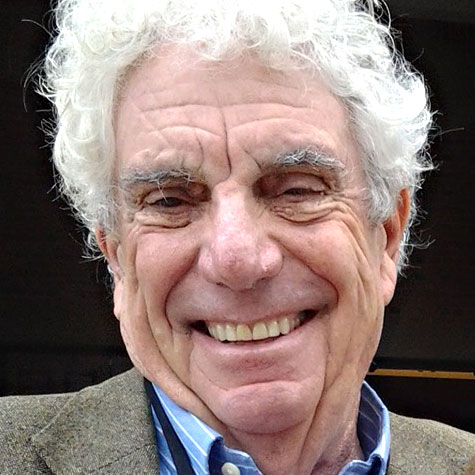As the number of homeless people in Los Angeles has grown to a level that is a civic disgrace, I’ve been wondering whether we Jews have a special obligation to help them.
Statistics show the calamitous nature of the situation. The total of homeless people locally has increased by 12 percent in the last two years, the Los Angeles Times reports, to 44,000 in Los Angeles County — 26,000 of them within L.A. city limits. Many live in vehicles, the 9,535 tents downtown and throughout the city, or under tarpaulin shelters in makeshift encampments, which have grown by 85 percent since 2013. Those figures are expected to increase after this week’s Los Angeles Homeless Services Authority annual count of the homeless is tallied.
I began thinking about our obligation to help the helpless while reading an excellent history, “1944: FDR and the Year That Changed History” by Jay Winik. What distinguishes this book from the many other Franklin D. Roosevelt-era histories is Winik’s deep exploration of the years just before and during World War II, when President Roosevelt and his administration refused to try to save European Jewry from the Holocaust.
Winik writes of the frantic efforts of American Jews, extending from the grass roots up to leaders such as Treasury Secretary Henry Morgenthau and Rabbi Stephen Wise, to save the European Jews. Some 40,000 New Yorkers crowded into Madison Square Garden, with thousands more outside, to watch a pageant called “We Will Never Die.” Jews around the country protested. The president’s wife, Eleanor Roosevelt, joined the effort in her newspaper column, “My Day.” Escapees from the concentration camps and many others tried to alert an indifferent world, to no avail. Roosevelt, guided by a State Department riddled with anti-Semitism, did nothing.
I am not, of course, comparing the Holocaust to the plight of the homeless. I imagine some readers will be offended that I even pair the homeless and the Holocaust in the same column. I know the situations are not comparable. But I can’t help wondering whether our experiences of being persecuted don’t give us a heightened obligation to be leaders in the effort to save the homeless.
I’m not alone in that, as I learned when I began to ask what the Jewish community is doing in this area. I contacted Jewish Family Service. I had written about JFS efforts to help the newly unemployed during the recession and thought it would be involved in this latest crisis. I had called the right place.
“Sure, Jewish people become homeless,” said Nancy Volpert, director of public policy for Jewish Family Service. “The Jewish community is not exempt from homelessness, poverty, drug abuse. We come together to provide services to people in a way that is respectful but fills their needs.”
JFS’ efforts, which are not restricted to Jewish people, have long focused on two segments of the homeless population not often mentioned in media accounts — victims of domestic abuse and the elderly. JFS is putting its experience assisting such people to work with the homeless.
The common view of the homeless is that they are mentally ill, addicts, or both, and are beyond help. But as JFS has found, that’s a simplistic view — and a cruel one.
“About a third of the homeless come out of a violent home, particularly but not limited to women,” Volpert said. “The current plans put forth by the city and county do not designate any program for [victims of] domestic violence for the homeless. They recognize drugs, alcohol, mental illness, but not domestic violence.”
Yet, spousal abuse can be a fast track toward homelessness. A wife without resources of her own bundles up the kids and flees an abusive spouse, maybe to stay with a relative. If that doesn’t work out, the family will often live in a car, moving from parking lot to parking lot at night, and then to an encampment.
Jewish Family Services is part of a network of organizations that serve such people, offering two emergency shelters in the San Fernando Valley and one in the more urban side of the city, south of the Santa Monica Mountains.
“That’s one of the two major things I would like you to know about,” Volpert said. “The other is the homeless who are aged.”
The elderly factor shatters another preconceived idea about the homeless — that they are young, tough and scary.
“People who live on the streets age much more quickly,” Volpert said. “They show signs of age-related debility. How do we provide services to those who are older homeless?”
That’s a question that hasn’t been answered by anyone yet. The number of afflictions that come with old age, both physical and mental, add a puzzling new dimension to the homeless problem. But at least Jewish Family Services is shining a light on it and offering food and other forms of assistance.
As homeless encampments have expanded out from the more traditional sites on Skid Row and in Venice into the Westside, Hancock Park, Silver Lake and the San Fernando Valley — all areas with significant Jewish populations and institutions — the plight of these encampments’ occupants has become a matter of community concern. The Jewish community, with its history and long experience in charitable work, can and should provide invaluable help to the effort to reduce, or even end, homelessness.
Bill Boyarsky is a columnist for the Jewish Journal, Truthdig and LA Observed, and the author of “Inventing L.A.: The Chandlers and Their Times” (Angel City Press).























 More news and opinions than at a Shabbat dinner, right in your inbox.
More news and opinions than at a Shabbat dinner, right in your inbox.